Learn to Play Classical Guitar
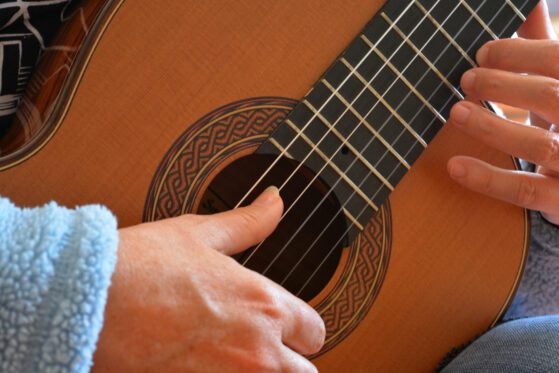
This blog aims to be your friendly guide to embarking on a journey with the beautiful classical guitar. Whether you’ve always admired the rich sound or are simply looking for a new creative outlet, this beginner’s guide will equip you with the essentials to get started.
Getting Started
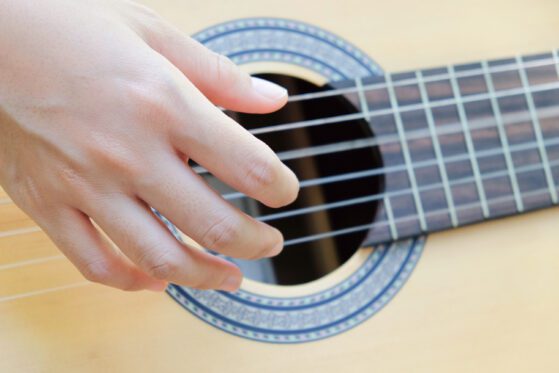
- Choosing Your Instrument: A classical guitar is distinct from its steel-string counterparts. Nylon strings provide a warmer tone and are easier on the fingers, perfect for beginners. Look for a guitar size suited to your body frame.
- Posture and Technique: Proper posture is key to preventing strain and developing good playing habits. Learn how to hold the guitar comfortably and practice basic finger placement for fretting notes.
Learning the Essentials
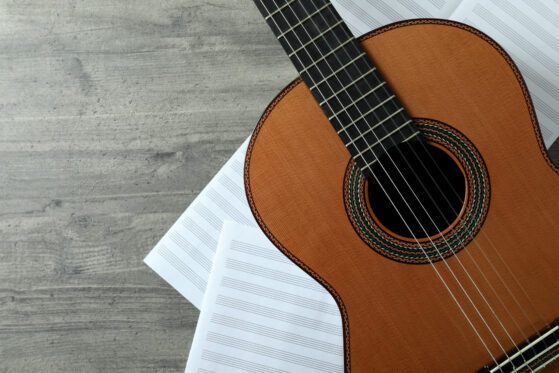
- Music Theory Basics: Grasping fundamental music theory concepts like notes, chords, and scales will significantly enhance your learning experience. There are plenty of beginner-friendly resources available online and in libraries.
- Reading Music Notation: Standard notation, with its staves and symbols, is the language of written music. Familiarize yourself with basic notation to translate sheet music into beautiful melodies.
Practice Makes Progress
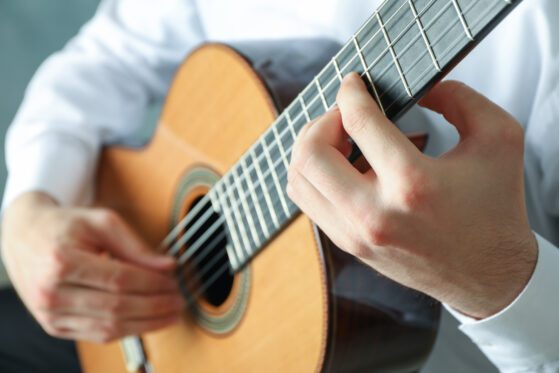
- Start Slow and Steady: Focus on accuracy and clean technique over speed. Break down complex pieces into manageable sections and practice them slowly with a metronome to build accuracy and speed gradually.
- Developing Finger Strength: Playing guitar requires finger dexterity and strength. Daily practice sessions incorporating finger exercises will improve your agility and make playing more comfortable.
- Finding the Fun: Learning an instrument should be enjoyable! Choose pieces that inspire you and don’t be afraid to experiment. There’s a vast repertoire of classical music to explore, from beginner-friendly pieces to more challenging works.
Additional Resources

- Online Lessons: Numerous websites and platforms offer free and paid classical guitar lessons. These can be a fantastic resource for visual learners and those seeking a structured learning approach.
- Guitar Teachers: Consider taking lessons from a qualified guitar teacher. They can provide personalized guidance, address your specific challenges, and help you stay motivated on your musical journey. To learn Acoustic Guitar from our experienced guitar instructors enroll now.
Join the Community
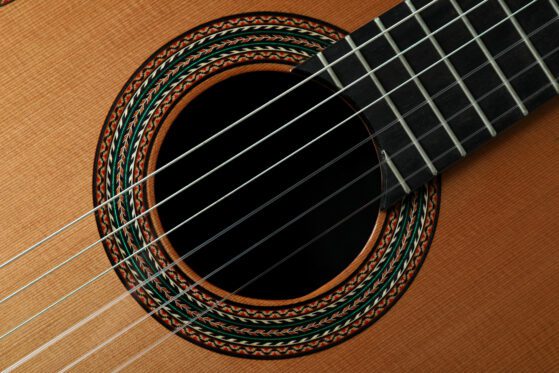
Connect with other classical guitar enthusiasts online or in your local community. Share your progress, ask questions, and gain inspiration from fellow learners.
Learning classical guitar is a rewarding experience that opens doors to a world of musical expression. With dedication, patience, and this guide as a stepping stone, you’ll be well on your way to making beautiful music on your own!
For more information and exciting resources about learning music, visit our website at The Mystic Keys. For more music content and exciting offers follow us on Facebook, Instagram, YouTube, LinkedIn, Twitter, Pinterest, Reddit, Threads, and Quora







